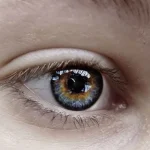All the information you need on Photokeratitis
Photokeratitis is a painful eye condition caused by harmful ultraviolet (UV) rays. Photokeratitis, often known as ultraviolet keratitis, can be compared to a sunburn, except that it affects the cornea instead of the skin. The cornea is the clear front part of the eyes that covers the iris, pupil, and anterior chamber. Exposure to UV rays can cause damage to the cornea and the conjunctiva.
Photokeratitis is also known with various names like arc eyes, flash burns, potato eye, bake eye, corneal flash burn, sand man’s eye, snow blindness, and keratoconjunctivitis photoelectrica.
Photokeratitis symptoms
Photokeratitis symptoms Jun last up to 24 hours, but they usually disappear within 48 hours. The symptoms for photokeratitis (ultraviolet keratitis) are:
- Tears
- Swelling
- Pain and redness in the eyes
- Seeing halos
- Sensitivity to light
- Gritty sensation in the eyes
- Twitching of the eyelids
- Gritty sensation in the eyes
- Blurring of vision
- Temporary vision loss
- Headache
- Rarely, some people might experience temporary colour changes in vision
What causes ultraviolet keratitis?
Ultraviolet rays coming from the sun and other sources can affect the eyes. There are many man-made sources of ultraviolet light. Ultraviolet radiation is also emitted by various machines like lasers, lamps, mercury vapour lamps, and other welding equipment. Long term exposure to ultraviolet radiation might increase the risks of developing cataracts and macular degeneration. In addition to this, people who spend most of their time outdoors such as hikers, mountain climbers, and swimmers are more likely to get ultraviolet keratitis.
Photokeratitis diagnosis
As part of photokeratitis diagnosis, your eye specialist can ask you about your recent activities. Your eyes will then be examined thoroughly to check how much damage harmful UV radiation has caused to your eyes. A dye called fluorescein can be put into your eyes to check for the superficial irregularities in the cornea.
Photokeratitis treatment
If you have been experiencing symptoms for photokeratitis, then follow below-listed things for relief.
- Remain indoors. Do not go outside and if possible, stay in a darkened room
- Do not rub your eyes.
- Remove your contact lenses immediately.
- Placing a cold washcloth over your eyes can help in relieving discomfort.
- With the doctor’s prescription, take over the counter pain reliever medicines for greater comfort.
- Try to skip makeup for some days for faster healing. Using stuff like false eyelashes can irritate the eyes.
It is best advised to seek a medical opinion if you feel that the condition is not relaxing on its own in a few days. You could be prescribed with eye drops if there is a risk of eye infection.
How can photokeratitis be prevented?
There are many things that can be done to prevent this condition from happening to yourself. Preventive measures are as follows:
- Wear eye protection like sunglasses or snow goggles while stepping out in the sun. Sunglasses block up to 99-100% of harmful UV rays.
- Wrap-around sunglasses are also right as they block UV rays from all sides including sideways.
- Wear a wide-brimmed hat to save your eyes and face from direct UV exposure.
- If your job is such that you require to spend a lot of time being exposed to ultraviolet radiation, then wear proper eye protective equipment.
- Do not stare at machines like lasers and lamps for long.
- While using a tanning bed, make sure to wear protective eye gear, always. Try to keep your eyes closed.
Photokeratitis follow up
Follow-up visits to the doctor are always recommended within 2-3 days of the initial diagnosis to ensure that the treatment is going fine. Any recurrence of pain or redness in the eyes should be promptly re-evaluated.
Centre for Sight is always just a call away when it comes to quality eye care. More than two decades of experience in eye care defines the expertise of CFS. Strategically located in New Delhi and other parts of the country, the CFS team’s objective is to help all people struggling with eye disorders, diseases, and problems. Ultraviolet keratitis can be treated when you have the right doctor to guide you and help you sail smoothly through the journey of recovery. If you or any of your loved ones are dealing with this problem, it is time to get the right treatment.
Article: All the information you need on Photokeratitis
Author: CFS Editorial Team | Aug 21, 2020 | UPDATED 01:15 IST
*The views expressed here are solely those of the author in his private capacity and do not in any way represent the views of Centre for Sight.





